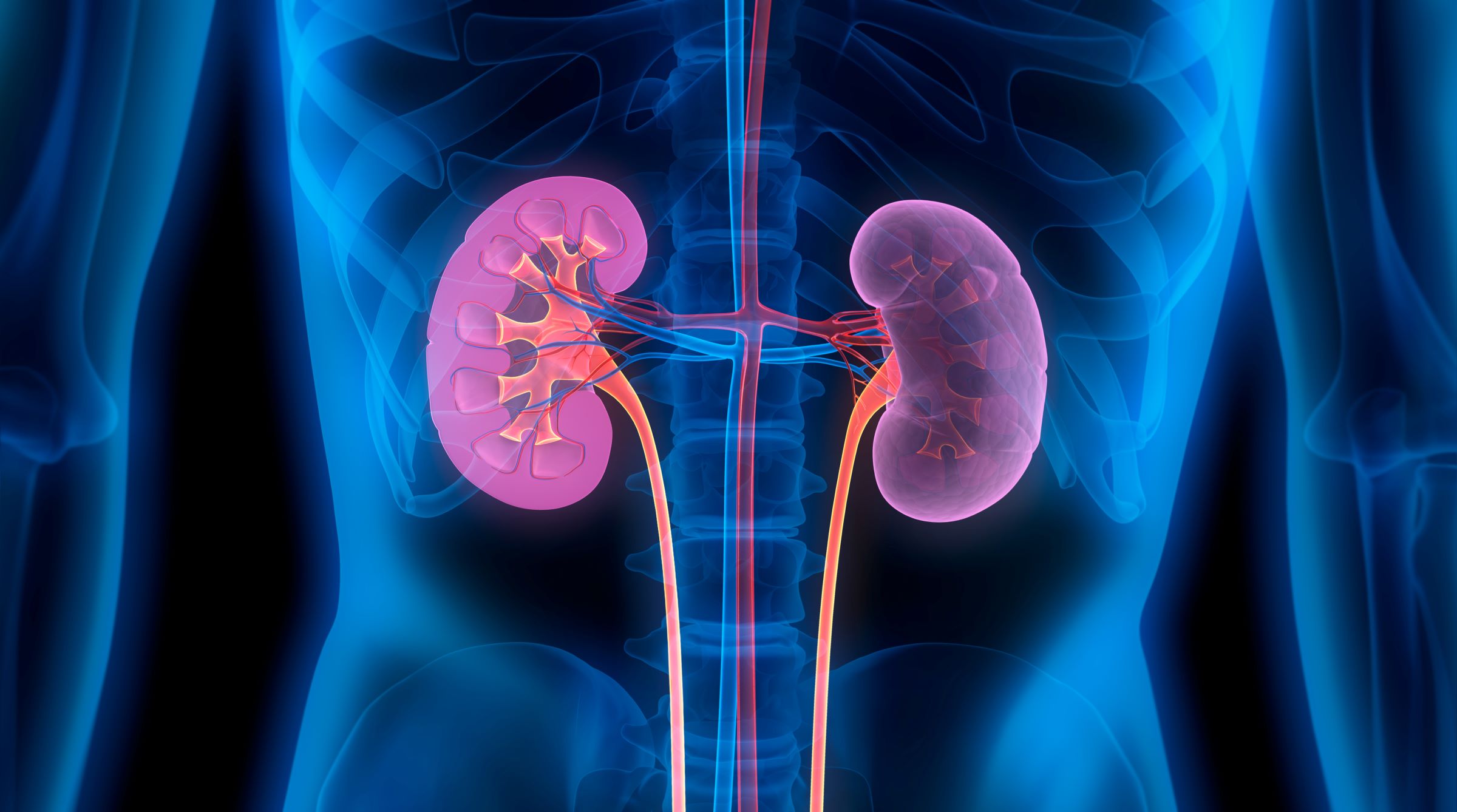Did you know one in three Americans is at risk for developing kidney disease and two common conditions, high blood pressure and diabetes, are the leading causes?
March is National Kidney Month, during which the National Kidney Foundation (NKF) urges Americans to learn more about their kidneys and to take steps to preserve their kidney health.
What Do the Kidneys Do? 
The kidneys are fist-sized organs located on either side of your spine, just below the rib cage. These vital organs’ main functions are to filter your blood and keep your body's chemicals in balance. Your kidneys remove waste and extra water from your blood that will eventually become urine. When healthy and working properly, they also help control your blood pressure, make certain hormones, and activate vitamin D.
Chronic Kidney Disease (CKD)
Chronic Kidney Disease (CKD) occurs when the kidneys are damaged and can no longer filter the blood or help eliminate waste as well as they should. Common risk factors for CKD are diabetes, high blood pressure, history of heart disease or a family history of kidney failure. Complications from CKD can cause high blood pressure, anemia (low blood count), weak bones, nerve damage, poor nutritional health, and an increased risk of heart and blood vessel disease. CKD could progress to kidney failure which would require either dialysis or a kidney transplant.
How to Keep Your Kidneys Healthy
There are plenty of ways to protect your kidney health. Choose foods with low salt (sodium) and that are healthy for your heart - fruits, vegetables, whole grains, and lean protein. Limit the amount of alcohol you consume regularly and remain as physically active as possible. Work to control your blood pressure and keep your blood sugar well controlled if you have diabetes. Stay within a healthy weight range and avoid smoking.
For more information, visit the Prairie Lakes Nephrology Clinic website.

